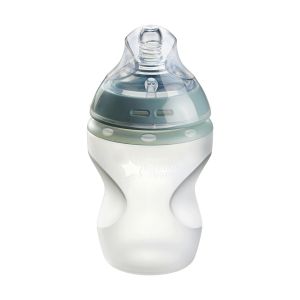
This is a demo store. No orders will be fulfilled.
Subscription orders can be cancelled at anytime. Standard delivery will be charged on each subscription order. Find out more about subscriptions.
They’re easy and fuss free
Your products are automatically sent to you
You save when you sign up for a subscription
You can cancel at any time
Midwives, doctors, and the World Health Organisation recommend that babies are exclusively breastfed for the first six months of their life. But there're many reasons why parents might need to make the switch from breastfeeding to bottle feeding at any stage.
When it comes to bottle feeding, there's no doubt that expressed breast milk is the most natural source of nutrition for your baby, but for parents who give their baby formula, there's no need to worry. There are advantages of bottle feeding with either breast milk or formula, and we're here to support you and provide the information you need to know.
When it comes to choosing whether to give your baby breast milk or formula in a bottle, there's no right or wrong choice, just what's best for you and your baby. Let us help you decide which option is best for you and your unique journey.
Breast milk is natural food for your baby, filled with all the specific nutrients that they need. It's like their own favourite unique recipe that's made by you just for them. Expressing breast milk using a pump and feeding it to your baby in a bottle rather than directly from the breast means that they'll still be able to enjoy all the nutritional advantages of breast milk.
Some of the many benefits of breast milk include...
There's lots of support out there if you do want to continue breastfeeding or expressing your breast milk. But if you do choose to feed your baby formula in a bottle instead, you should discuss your options with your doctor, midwife, or health care provider.
The truth is, some parents are unable to breastfeed or express breast milk, and the only other option available is to give their baby formula milks. These milks are specially developed and balanced with all the nutrients a growing baby needs to thrive. They're made to mimic the nutrients of human breast milk.
If you do give your baby formula milk, there's no reason for you to feel guilty. Your baby will still grow and thrive. If you and your baby are happy and healthy, that's all that matters.
Giving your baby formula milk in a bottle means that...
Yes, you can. In some cases, parents choose to feed their baby both breast milk and formula milk in a bottle.
This is known as combination feeding and can be really helpful for parents who intended to exclusively breastfeed their baby, but their plans haven't worked out for whatever reason.
It can also be a practical choice when parents are planning to go back to work, or experience a drop in their milk supply.